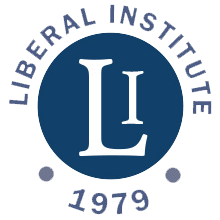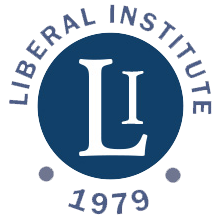
In 1755, the Lisbon earthquake wrenched the city’s residents out of their Age of Enlightenment dream of the best of all possible worlds; similarly, in 1912, the sinking of the Titanic shattered man’s faith in technical mastery over natural forces; and now the terrorist attacks on 11th September have caused us to radically call into question the belief that that there can be an enduring guarantee of security in a technology-dependent civil society. We once again find ourselves confronted with the question of whether our view of the world and of humankind should be predominantly governed by optimism or by pessimism.
Some years ago, I made a somewhat presumptuous attempt to define freedom. I reached the following paradoxical formulation, which does in fact provide us more with food for thought than it does with a logically correct description: Freedom is that idea which is always infinitely vulnerable and yet at the same time infinitely resistant. If we take this viewpoint, then, freedom means a combination — albeit one that is ultimately indissoluble — of chances and risks. These chances and risks were demonstrated to us last month in the most brutal fashion.
With supreme precision, international terrorism has succeeded in exploiting the vulnerability of a free and open society and has caused colossal damage, the consequences of which it is still not possible to estimate. The material damage that has been sustained will, one assumes, be easier to repair than the psychological damage that results from such a loss of confidence. The fears for the future now lie smouldering beneath the ruins of human suffering, and because economics is very closed linked to psychology, the rapid return to a state of so-called normality (one that was, in any event, always laden with open and concealed conflicts) must not allow us to trivialise in any way this decisive point in history.
Has the free world now been cut to the quick? And will we now have to agree with those people who have always maintained that a technologically highly complex world such as this can only be saved from self-destruction and from the ever-increasing abuse of freedom by installing comprehensive technical and human monitoring systems and by deploying a highly mobile military intervention force (in the form of a global police unit)? Are we now standing on the threshold of the reappearance of the centralised, authoritarian and militarised power state, the “big-brother” state — at national, continental or even global level? The extent and the consequences of the American catastrophe give cause for demanding counter-strategies, based on the principle that “safety comes before freedom”. After all, the attempt to strike at two centres of a world power was successful, in part at least – the plan had probably been to hit three sites. Thus, the infinite vulnerability of freedom is proven. But the other side of the equation, the resistance of freedom, did not collapse. Indeed, there are a growing number of indications that this resistance is even being strengthened in a dialectic process in the medium and long term. There are several reasons for this: For a start, the belief on the part of those totalitarian and centralistic-minded terrorists of every shade that it is possible to topple a highly complex organism such as the global capitalism network by devastating two buildings that happen to bear the presumptuous name of “World Trade Center“ is, fortunately, an unrealistic one. There is, and never was, any such thing as a “centre of world trade”; this has been clearly demonstrated by these terrorist attacks. Notwithstanding the stock exchanges that were temporarily closed, the flow of world trade was not even interrupted for five minutes.
Will the 11th September go down as the date on which the history of the idea of freedom was effectively ended? And will this event merely go to show that all of those who had previously believed that advances had been made in this area were wrong? And of the aforementioned definition of freedom, is it only the unending vulnerability that now remains?
The resistance of worldwide, open markets is founded on the all too often underestimated principle of non-centralism, behind which may lie concealed the secret of freedom’s immunity. It is certainly possible by perpetrating treacherous attacks to cause thousands of people to be killed and important buildings to be destroyed within a matter of minutes and hours. However, a network of relationships that is built on a substantial number of peaceable, cross-border exchanges and civil dealings does have the potential for substitutions to be made and for a healing process to take place. This is a potential that is not known to hierarchy-based systems. Indeed, such an understanding is alien to the terrorist cells which function hierarchically themselves, and which are directed from control centres. This leads them to believe that it is possible to deliver a final thrust of the dagger into the heart of the freedom of thought, the freedom of belief and the freedom of trading which they so despise. Freedom is vulnerable, but it is precisely because it has no centre that it cannot be snuffed out for any length of time.
So what then is the situation with establishments operated by political and military leaderships that are in fact reliant on control centres? The politicians and strategists responsible for security have been aware of this problem for some time now. Fortunately, though, the opinion that it is possible to bring the US armed forces or even NATO’s defence to a standstill by setting fire to the building in which the military bureaucracy is housed is a naïve one. Military communication technology is also no longer focused on centres that establish contact with certain isolated points on the periphery, but is instead based on a system of multifunctional networks, where each point in the network can be simultaneously reached by each of the points in the network. This system drastically reduces the degree of vulnerability, while at the same time massively increasing the level of resistance. The relative vulnerability of these networks, which has been much criticised, is admittedly still a reality. However, developments are now well advanced with technology using networks that overlap and compete in many different ways, and this gives justified cause for optimism.
The strengthening of the immunity of an over-centralised political leadership is an item to be placed on the agenda for discussion and, given the impression left behind by recent events, one that should take precedence over all popular thoughts of revenge. The major political systems are now faced with the task of returning to an order based on the principle of overlapping, networked, autonomous non-centrality. To take an example, the world needs different stock exchange centres that can substitute each other. But it is not possible for us to expect the increase in immunity and the reduction in vulnerability that we desire to come from a centralised world government, i.e. a global organisation, or a world power. Centrality increases vulnerability, and it would be a fatal mistake “to rush into government by a higher centralised world governing body”. Freedom needs solid and non-centralised defence structures that guarantee a return to normality as swiftly and completely as possible — irrespective of the persons and governments that are directly involved in the process. The idea of peace and the prevention of terrorism must take precedence over the justification for revenge, although this does not mean that the crime should go unpunished.
The principle of using a system of robust, overlapping and open communication networks that are independent of each other and that take many different forms applies not only in the area of technology, but also in the psychological sphere of our coexistence and our dealings with each other. Variety and openness competing on peaceable terms do not weaken immunity, but rather they serve to strengthen immunity against threats of every description. It is not possible to strike at the heart of a system of freedom that is networked in such a way, nor — to coin a phrase — can that freedom be “smoked out”.
The question of vulnerability and resistance is also one that arises among the enemies of freedom. Organised terrorism is not based on the principle of openness and of peaceably competing and communicating non-centrality, but rather on the principle of decentralised, hierarchically structured cells that maintain their distance from each other by a disciplined observance of secrecy. This network is also relatively immune and resistant to combat. However, in contrast to the globalised network of the market, it can be combated by eliminating any of the individual cells. It will admittedly never be possible to eliminate all terrorism “cells” at any one time (the Hydra Problem), but every cell that is destroyed increases global security. Tyrannies and murder and deaths perpetrated by tyrants have only rarely lasted for any length of time. With this in mind, then, the organised fight against a terrorism that is either polycentric or decentred — as demanding as it may be — is tendentially more successful than the organised fight again non-central capitalism. It is an illusion to believe that a lasting victory over the hydra of the terrorist cells can be achieved. However, the stemming of their activity, in tandem with the implementation of passive protective measures (by so-called “hardening” of vulnerable systems and by strict polycentrism and/or non-centrality) can guarantee a relative level of security for open societies, and does give cause for justified optimism.
The process of globalisation — which revolves around a system of worldwide networking — is based on the peaceable exchange of ideas, goods and services. This process does not happen without those painful setbacks that are inextricably linked to the vulnerability of freedom. However, the fact that wounds sustained in the past have always given rise to healing forces and have ultimately served to strengthen resistance gives the strength — even in difficult situations and in spite of everything — for the risk of freedom in an open society to carry on taking risks.

Always stay up to date
Receive information about current publications and events around once a month.
The Liberal Institute is delighted to hear from you.
LIBERALES INSTITUT
Hochstrasse 38
8044 Zürich, Schweiz
Tel.: +41 (0)44 364 16 66
institut@libinst.ch
INSTITUT LIBÉRAL
Boulevard de Grancy 19
1006 Lausanne, Suisse
Tel.: +41 (0)21 510 32 00
liberal@libinst.ch
ISTITUTO LIBERALE
Via Nassa 60
6900 Lugano, Svizzera
Tel.: +41 (0)91 210 27 90
liberale@libinst.ch

Receive information in German about current publications and events about once a month.